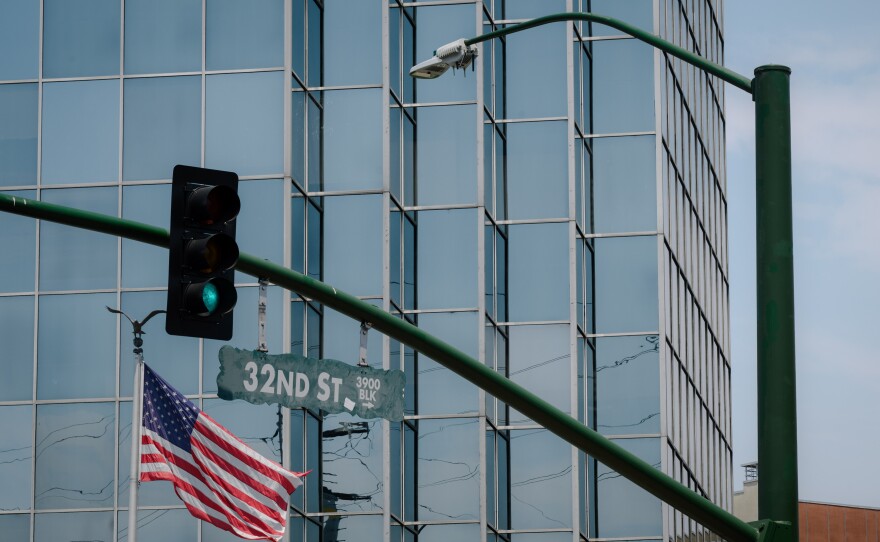The San Diego City Council is hustling to fill vacancies on the Privacy Advisory Board, an independent oversight body that monitors the city’s use of surveillance technology.
KPBS published a story this week detailing how the board has been hobbled by attrition in recent months. Currently, less than half of its nine seats are filled. This leaves the board without a quorum, which means it can’t meet to discuss surveillance issues and provide feedback to city departments.
Mayor Todd Gloria is primarily responsible for appointing members to the board. Yet, he didn’t appoint a single replacement as the vacancies added up, despite his office receiving a dozen applications in the last year.
Now the City Council is taking the lead. Council President Sean Elo-Rivera sent a memo to council members this week calling for nominations. He cited a section of the city charter that directs the City Council to make appointments to boards and commissions if the mayor has left vacancies unfilled for more than 45 days.
Some seats on the board have been vacant for more than 90 days. The council president gave council members just one week to produce nominations.
Elo-Rivera declined KPBS’ request for an interview. His spokesman, Chris Chan, confirmed the memo sent this week is the first time the council president has called for nominations to the Privacy Advisory Board since it began meeting in 2023.
Pegah Parsi, vice chair of the board, said the oversight body was created to monitor the rapidly-evolving world of surveillance technology.
“We saw the need to have solid safeguards, solid controls around these technologies so that we can use them to benefit the city,” Parsi said. “So not being able to meet is actually quite harmful for the city.”
While the board does not have the power to approve or reject the use of certain technologies, it can collect data, request information from city departments and provide expert guidance to the City Council ahead of votes.
The board’s June and July meetings were canceled and its next one in September is up in the air. The inability to meet comes at a pivotal moment. The San Diego Police Department is proposing substantive changes to its controversial “smart street lights” program, which deploys hundreds of cameras and license plate readers around the city to help deter and solve crimes.
Gloria spokeswoman Rachel Laing told KPBS in an email that the board seats are difficult to fill because they have specific qualifications. For example, one member must be a computer specialist; another must be a certified public accountant or auditor.
“The City must rely on people who have very specific professional qualifications being willing to serve as volunteers,” Laing wrote.
According to Elo-Rivera’s memo, three of the vacant seats are reserved for applicants from “equity focused organizations,” which carries a fairly broad definition under the city’s municipal code.
Another vacant seat must be held by an attorney or legal scholar with expertise in privacy or civil rights.
Brett Diehl, a San Diego-based lawyer, believes he fits that description.
“The Privacy Advisory Board fills an important citizen-driven function in our community … making sure that the balance is struck properly between public security as well as individual liberties and rights,” Diehl said in an interview.
He reached out to the City Council in April — twice — to express his interest in serving on the board, but never heard back. He then submitted his application in June.
Diehl, who lives in District 3, was contacted by Councilmember Stephen Whitburn’s office after KPBS inquired about his application last week. He hopes his name is among the nominees put forward by the council in the coming days.







